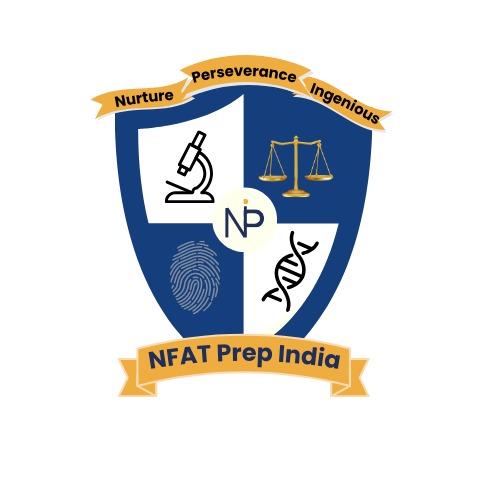Study Tips and Recommended Books for Cracking NFAT – Your Ultimate Guide

The National Forensic Admission Test (NFAT) is an increasingly popular gateway for aspiring forensic science professionals. To successfully crack this competitive exam, it is essential to adopt effective study techniques and build a strong foundation using the right study materials. In this guide, we provide expert study tips and recommended books for cracking nfat exam that will help you prepare efficiently and boost your chances for success.

Study Tips for NFAT Preparation
1. Understand the Syllabus Thoroughly
Before you start studying, familiarize yourself with the NFAT syllabus. Understand the topics and sub-topics in forensic science, reasoning, general knowledge, and other subjects as prescribed. Knowing the syllabus in detail helps you create a focused study plan.
2. Create a Study Timetable
Plan your daily, weekly, and monthly study sessions to cover all topics in a structured manner. Allocate extra time for difficult subjects and ensure regular revision. A well-organized timetable not only improves time management but also helps you track your progress.
3. Use Active Learning Techniques
Engage in active learning by taking notes, summarizing chapters in your own words, and teaching concepts to a peer or study group. Active recall and spaced repetition are proven strategies to reinforce memory retention.
4. Practice Past Papers and Mock Tests
Solve previous year NFAT question papers and take regular mock tests. This not only familiarizes you with the exam pattern and time constraints but also identifies your strengths and weaknesses. Continuous practice helps sharpen problem-solving skills and builds confidence.
5. Focus on Forensic Science Fundamentals
Forensic science has a lot of specialized content. Pay particular attention to topics like crime scene investigation, evidence analysis, forensic biology, and chemistry. Use case studies and real-life examples to understand practical applications.
6. Revise Regularly
Consistent revision is critical. Schedule regular review sessions for each subject to ensure that you have a strong grasp of all core concepts. Regular revision minimizes the risk of forgetting previously learned topics and helps consolidate your knowledge.
7. Join Coaching Classes or Study Groups
Consider enrolling in reputed coaching programs or creating study groups with fellow aspirants. Interacting with peers and mentors can clarify doubts, expose you to different perspectives, and encourage a collaborative learning environment.
8. Stay Updated with Current Affairs
For NFAT, a certain level of general awareness is required. Make it a habit to read newspapers, watch educational news channels, or use reliable online resources to stay informed about the latest developments in science, technology, and current events.
Recommended Books for NFAT Preparation
Choosing the right books is crucial for a comprehensive understanding of forensic science and related topics. Below is a list of highly recommended books, selected for their clarity, depth, and relevance to the NFAT syllabus.
1. Forensic Science – Richard Saferstein
This book is a comprehensive guide that covers various facets of forensic science, including DNA analysis, toxicology, ballistics, and crime scene investigation. It is widely appreciated for its detailed explanations and numerous real-life examples.
2. Forensic Science in Criminal Investigation & Trials – B.R. Sharma
A focused resource for understanding the application of forensic science in legal contexts, this book delves into the techniques and methodologies used in criminal investigations. It is particularly useful for grasping how forensic evidence is analyzed and presented in court.
3. Fundamentals of Forensic Science – Max M. Houck and Jay A. Siegel
For a solid foundation in forensic science, this book is an excellent choice. It covers key topics such as evidence collection, crime scene processes, and the scientific principles underlying forensic methods. Its systematic approach makes complex concepts easier to understand.
4. A Modern Approach to Verbal & Non-Verbal Reasoning – R.S. Aggarwal
Reasoning skills form an important part of the NFAT. This book sharpens both verbal and non-verbal abilities using a variety of problems and methodical explanations that help you build problem-solving strategies critical for the exam.
5. General Knowledge – Manohar Pandey
Staying informed with current affairs and general science is important for NFAT aspirants. This book offers a comprehensive overview of current events, scientific advancements, and relevant general knowledge topics that are essential for competitive examinations.
6. Additional Recommended Resources
- NCERT Science Textbooks: For clear, concise explanations of fundamental scientific concepts, these textbooks remain an invaluable resource.
- Reference Guides and Previous Year Papers: These help you understand the format, question patterns, and topics frequently tested in NFAT.
- Online Tutorials and Video Lectures: Supplement your reading with digital resources for visual and interactive learning.
Frequently Asked Questions (FAQs)
1. What are the key topics that I need to focus on for NFAT?
Focus on forensic science fundamentals, including crime scene investigation, evidence analysis, forensic biology, and chemistry. Additionally, sharpen your reasoning and general knowledge skills.
2. How important are mock tests for NFAT preparation?
Very important. Mock tests familiarize you with the exam format, help improve time management, and identify areas where you need further revision.
3. Can I self-study for NFAT, or should I join a coaching program?
Both approaches can be effective. Self-study works well if you are disciplined, but coaching classes and study groups provide structured guidance and the opportunity to discuss challenging concepts.
4. Which book is the best for understanding forensic science in depth?
Forensic Science by Richard Saferstein is highly recommended due to its comprehensive coverage of forensic techniques and real-life examples.
5. How can I improve my reasoning skills for NFAT?
Practice consistently using books like A Modern Approach to Verbal & Non-Verbal Reasoning by R.S. Aggarwal and solve a variety of puzzles, logical questions, and previous year papers.
6. What additional resources can help supplement my NFAT preparation?
Consider using NCERT textbooks for basic science concepts, online tutorials, video lectures, and solving previous year NFAT question papers to enhance your overall preparation.
Conclusion
Cracking the NFAT requires a blend of strategic study techniques and the right reference materials. By following these study tips and utilizing the recommended books, you can build a solid foundation in forensic science and improve your chances of success. Stay disciplined, regularly assess your progress with practice tests, and keep yourself updated with current affairs to excel in NFAT.
